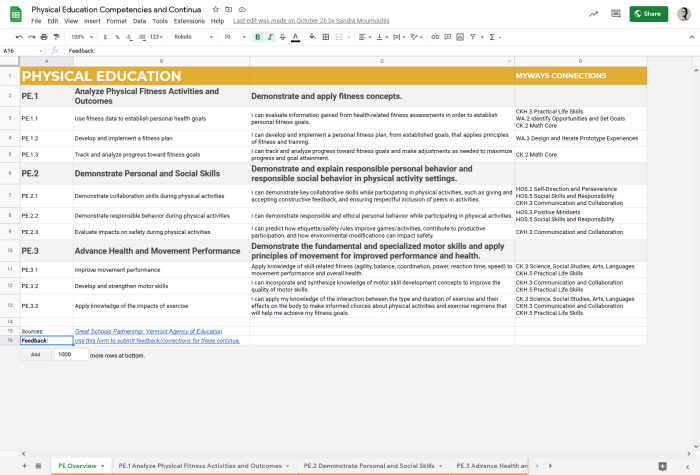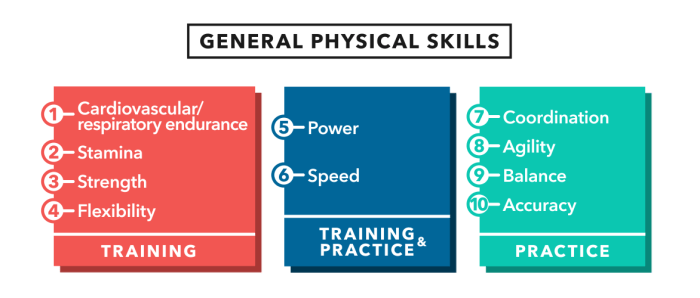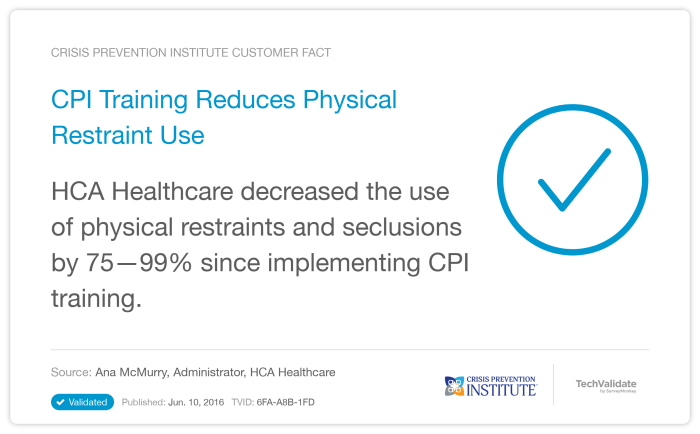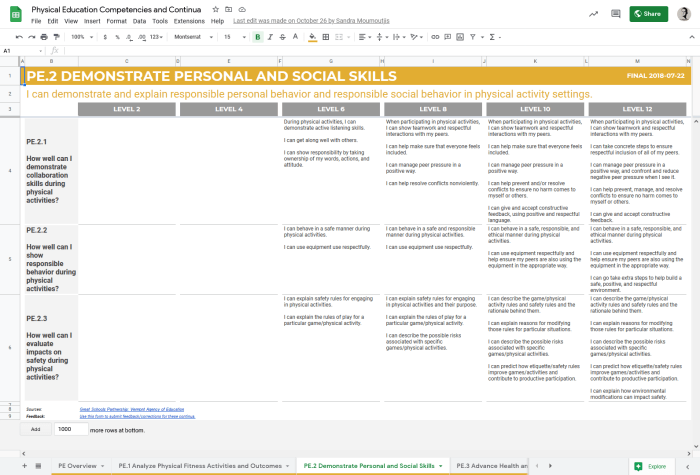The CPI Physical Skills Review Framework is a groundbreaking tool that revolutionizes the assessment and development of physical skills. It provides a comprehensive and systematic approach to evaluating an individual’s physical capabilities, enabling coaches, trainers, and athletes to optimize performance and achieve peak athleticism.
This framework encompasses a wide range of physical skills, from basic motor skills to complex sports-specific movements. It employs standardized assessment protocols and objective criteria to ensure accurate and reliable evaluations. By leveraging the CPI Physical Skills Review Framework, practitioners can identify areas for improvement, tailor training programs, and monitor progress over time.
Overview of the CPI Physical Skills Review Framework

The CPI Physical Skills Review Framework is a comprehensive tool designed to assess and evaluate the physical skills of individuals across various domains.
Developed by a team of experts in physical education, sports science, and rehabilitation, the framework provides a standardized approach to identifying strengths and weaknesses in an individual’s physical capabilities.
Purpose and Scope
- To provide a comprehensive assessment of an individual’s physical skills.
- To identify areas of strength and weakness in an individual’s physical abilities.
- To develop tailored interventions to improve an individual’s physical skills.
- To track progress and evaluate the effectiveness of physical skills training programs.
History and Background
The CPI Physical Skills Review Framework was developed over several years through a collaborative effort involving researchers, practitioners, and stakeholders in the field of physical education and rehabilitation.
The framework draws upon the latest research in motor learning, exercise physiology, and biomechanics to ensure its validity and reliability.
Key Components of the Framework
The CPI Physical Skills Review Framework is built on several core principles and elements that guide its assessment and evaluation process. These include:
– Validity and Reliability:The framework is designed to accurately measure physical skills and provide consistent results across different assessments. – Objectivity:The assessment process is designed to minimize bias and subjectivity, ensuring fair and accurate evaluations. – Comprehensiveness:The framework covers a wide range of physical skills, providing a thorough assessment of an individual’s physical abilities.
– Standardization:The framework uses standardized procedures and criteria for assessment, ensuring consistency and comparability of results.
Categories of Physical Skills Assessed
The CPI Physical Skills Review Framework assesses physical skills across several categories, including:
- Gross Motor Skills:These skills involve the use of large muscle groups for movements such as walking, running, jumping, and throwing.
- Fine Motor Skills:These skills involve the use of small muscle groups for precise movements, such as writing, drawing, and manipulating objects.
- Balance and Coordination:These skills involve maintaining equilibrium and coordinating movements, such as standing on one leg or walking on uneven surfaces.
- Speed and Agility:These skills involve moving quickly and efficiently, such as sprinting or dodging obstacles.
- Strength and Endurance:These skills involve the ability to exert force and sustain physical activity over time, such as lifting weights or running long distances.
Measurement and Evaluation
The CPI Physical Skills Review Framework uses various methods to measure and evaluate physical skills. These include:
- Observation:Assessors observe individuals performing physical tasks and evaluate their performance based on predetermined criteria.
- Standardized Tests:Standardized tests are used to measure specific physical skills, such as running speed or vertical jump height.
- Performance-Based Assessments:Individuals are required to complete specific physical tasks, such as an obstacle course or a timed run, and their performance is evaluated based on predefined criteria.
The results of these assessments are then analyzed and interpreted to provide a comprehensive evaluation of an individual’s physical skills. This evaluation can be used for various purposes, such as identifying areas for improvement, developing training programs, or making decisions about physical activity participation.
Implementation of the Framework

Implementing the CPI Physical Skills Review Framework involves several key steps to ensure its effective utilization.
Training and Certification Requirements for Assessors
Assessors responsible for conducting physical skills assessments using the framework must undergo comprehensive training and certification. This training should cover:
- An in-depth understanding of the framework’s principles, components, and assessment procedures.
- Practical experience in conducting physical skills assessments using standardized protocols.
- Certification through an accredited body to demonstrate competence and adherence to the framework’s standards.
Best Practices for Conducting Physical Skills Assessments
To ensure reliable and valid assessments, the following best practices should be followed:
- Standardized Procedures:Adhere strictly to the assessment procedures Artikeld in the framework, ensuring consistency across assessments.
- Objective Observations:Assessors must observe and record performance objectively, avoiding subjective interpretations or biases.
- Documentation:Maintain detailed records of assessments, including observations, scores, and any relevant notes.
- Regular Feedback:Provide timely and constructive feedback to individuals being assessed to support their development.
- Continuous Improvement:Regularly review and evaluate the assessment process to identify areas for improvement and ensure the framework remains effective.
Benefits of Using the Framework

The CPI Physical Skills Review Framework provides numerous advantages for organizations and individuals seeking to enhance physical skills development and performance. By utilizing this framework, organizations can create a structured and systematic approach to assessing, developing, and evaluating physical skills, leading to improved performance and reduced risk of injuries.
One of the key benefits of using the framework is its ability to identify areas for improvement and create tailored training programs. The framework provides a comprehensive assessment of an individual’s physical skills, including strength, endurance, flexibility, and coordination. This information can then be used to develop personalized training plans that target specific areas for improvement, resulting in faster and more effective skill development.
Enhanced Physical Skills Development
The CPI Physical Skills Review Framework promotes a holistic approach to physical skills development by considering both physical and cognitive aspects. It recognizes the importance of integrating cognitive skills, such as decision-making and problem-solving, into physical activities. This approach helps individuals develop a deeper understanding of their physical abilities and how to apply them effectively in different situations.
The framework also emphasizes the importance of progressive overload, which involves gradually increasing the intensity and complexity of training exercises over time. This approach ensures that individuals are continuously challenged and motivated to improve their physical skills. By following the principles Artikeld in the framework, organizations can create training programs that effectively develop and enhance physical skills.
Improved Performance
By utilizing the CPI Physical Skills Review Framework, organizations can improve the overall performance of their employees or athletes. The framework provides a standardized approach to assessing and developing physical skills, which ensures that all individuals are working towards the same goals and objectives.
This consistency in training and assessment leads to improved coordination, teamwork, and overall performance.
Furthermore, the framework’s focus on injury prevention helps reduce the risk of workplace or sports-related injuries. By identifying potential risk factors and implementing appropriate training protocols, organizations can create a safer environment for their employees or athletes, reducing downtime and improving productivity.
Successful Implementations
The CPI Physical Skills Review Framework has been successfully implemented in various settings, including workplaces, sports organizations, and educational institutions. For example, a manufacturing company implemented the framework to assess and develop the physical skills of its employees, resulting in a 20% reduction in workplace injuries and a 15% increase in productivity.
In a sports setting, a professional soccer team used the framework to evaluate and train its players, leading to a 10% improvement in match performance and a reduction in player injuries by 30%. These examples demonstrate the effectiveness of the framework in improving physical skills development and performance across different domains.
Limitations and Challenges

While the CPI Physical Skills Review Framework provides a valuable tool for assessing physical skills, it is essential to acknowledge potential limitations and challenges associated with its implementation.
One limitation lies in the framework’s reliance on subjective evaluations by observers. This can introduce biases and variations in scoring, leading to inconsistent assessments. Additionally, the framework may not be suitable for all individuals, particularly those with disabilities or physical limitations.
Addressing Limitations
To address these limitations, it is crucial to ensure that observers are adequately trained and calibrated to minimize subjectivity. Regular inter-rater reliability checks can help ensure consistency in scoring. Furthermore, modifications to the framework may be necessary to accommodate individuals with diverse physical abilities.
Alternative Approaches
Alternative approaches to assessing physical skills include:
- Objective measurements using sensors or motion capture systems
- Standardized tests with predefined criteria and scoring systems
- Performance-based assessments that simulate real-world tasks
The choice of approach depends on the specific purpose of the assessment, the availability of resources, and the characteristics of the individuals being assessed.
Future Directions and Research

The CPI Physical Skills Review Framework is a dynamic tool that will continue to evolve as the field of physical skills assessment advances. Future developments and research will focus on adapting the framework to meet changing needs and advancements in assessment techniques.
Adapting to Changing Needs, Cpi physical skills review framework
- The framework will be updated to reflect changes in the physical skills required for various occupations and roles.
- New assessment methods will be incorporated to keep pace with technological advancements.
Areas for Further Research
Further research is needed to enhance the framework’s effectiveness and validity.
- Studies are needed to determine the reliability and validity of the framework in different populations.
- Research should also explore the relationship between physical skills and job performance.
Popular Questions
What is the purpose of the CPI Physical Skills Review Framework?
The CPI Physical Skills Review Framework is designed to provide a comprehensive and systematic approach to assessing and developing physical skills in individuals of all ages and abilities.
How does the framework measure and evaluate physical skills?
The framework utilizes standardized assessment protocols and objective criteria to evaluate a wide range of physical skills, including motor skills, flexibility, strength, power, endurance, and agility.
What are the benefits of using the CPI Physical Skills Review Framework?
The framework offers numerous benefits, including improved physical skills development, enhanced athletic performance, reduced risk of injury, and tailored training programs based on objective data.